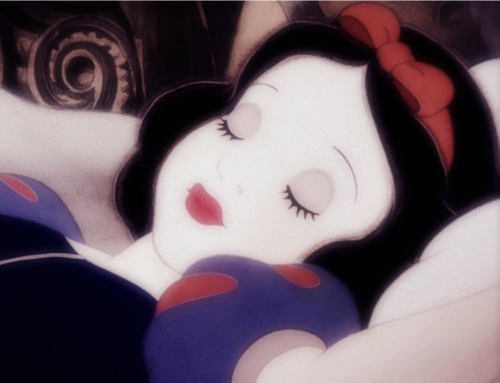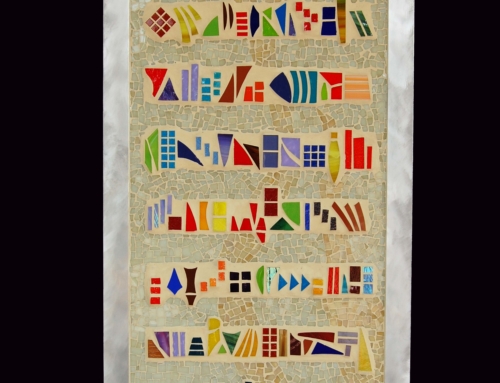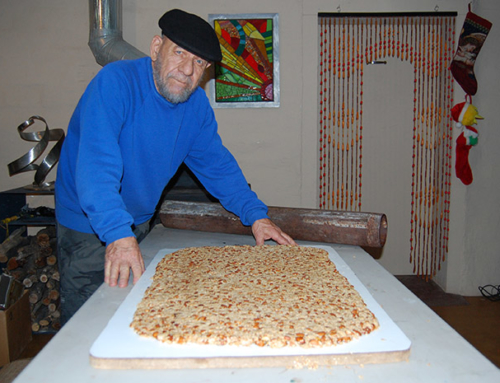WORLD WAR II – RECOLLECTIONS OF A CHILD
Born May 1939, a year or two before the US entered World War II as an active participant, and as a consequence I have little to recall until 1942. I was aware however, that a lot of men were fighting somewhere – a place called Europe, and later, some other place called Pacific, both far away from our home in Connecticut.
Children were starving and I didn’t understand. We had plenty of food. Often, when I fussed at something my mother served at supper (and I was very fussy), she’d use the line I’m sure millions of American kids heard many times over – “Some hungry kid in Europe would love this food.” I remember saying, “then let’s send it there.” And it was not a wisecrack. I was really sincere.
At age three, I looked at many pictures in newspapers and magazines showing consequences of war, the destroyed and sometimes burning buildings, maimed and sometimes frozen bodies half-covered with snow.
I remember that some of the men I knew were far away, but I didn’t understand where they had gone and when or if they were coming back, my dad was still here and everything seemed fine.
Two connected events I remember vividly and in great detail – telephone calls. If I were to return to that house in Connecticut, I could place my hand exactly where my mother put hers, on the doorframe for support. My mother had received a telephone call from Aunt Rose. They talked often, so it seemed a non-event until my mother began crying so deeply. I became frightened. “What’s wrong, ma? Ma, what’s happened.” “Oh, honey, your uncle is missing in action.” “What does that mean?” “It means they can’t find him.” And she wept and prayed for a long time. Of course, I was confused. Often, my mother couldn’t find me in our own house. Imagine not being able to find someone in a place, which could be as big as, let’s say, an apple orchard. Getting lost is easy. Finding someone is a little tougher. “Missing in action” seemed to be no big deal. So that was the first of the two events.
Three days, three weeks, three months later – a second call from Aunt Rose – and great rejoicing. And my mother knelt right there in the living room and said some prayers and I wanted to hear the good news. Again, “what’s happening, Ma?” She explained that my uncle, who was missing, had now been found, but by the wrong guys. “Sam is a prisoner of war”. “Ma, what does that mean?” “Honey, the Germans have him in prison, and that’s wonderful news. I’m so happy for your Aunt Rose.” I was totally baffled by this. My uncle was in prison and everyone is happy? And who were the Germans?
Late one afternoon, Aunt Anna (really an older cousin) opened the evening newspaper. There was an account of some battle taking place somewhere, with this many killed, this many wounded, this many missing, and Aunt Anna began crying. Again, I’m asking, “What’s wrong?” She took a while to stop crying, and hugging me, she finally said, “Oh darling, so many good brave men are dying.” To comfort her, I remember saying “ but so many new people are being born to take their place.” Anna said, “Yes, you’re right, but it is still so very sad.” All these emotions were raging around my younger sister and me and I was merely puzzled.
In these years, the war meant that we had strange forms of money in the house – some cardboard coins of different colors and rectangular slips of paper. These allowed us to get food, and I think, gasoline. Later I learned they were called coupons.
Occasionally, at night, my parents would move around the house and pull down black window shades. I vaguely remember sirens outside when the shades were drawn “so the Germans couldn’t see us.” Those Germans again. If the war was far away, how could the Germans see through our windows? And if they could, so what?
I was confused, too, about Italians. Many of the people I knew were Italians, and they seemed to be the very best people you could imagine. But other parts of our family were also Italians and I got the impression they were “on the other side in this war. They lived somewhere in a place called Sicilia. But somehow these other Italians were not really on the other side, and they hoped that we would win. I vaguely recall seeing a letter from Italy with holes in it where certain lines of the letter were cut out. Of course, the writing on the other side was gone, too. People were reading partial sentences that didn’t make sense.
My younger sister Phyllis and I had a job to do “to help the war.” Any empty food cans had to be crushed, collected, and put outside on the curb, but toothpaste tubes, then made of zinc or tin, had to be turned in at the drugstore to get a new tube of toothpaste. So Phyllis and I would take the empty tomato paste or vegetable cans down to our basement (which had a concrete floor) and jump up and down to crush them flat. I thought they’d be much more useful if they weren’t flattened, but there was fun to be had in smashing them.
Although some food items were relatively limited, vegetable and fruits seemed plentiful. “Victory Gardens” seemed to be everywhere. Often small, these gardens produced a tremendous amount of food. My grandmother’s little garden, perhaps 15’ by 20’ yielded a continuous harvest of tomatoes, peas, beans, swiss chard, etc., during the summer months. Meats, fats, and cooking oils were in short supply. Butter was rationed severely because “the soldiers needed it more than we did.”
A nearby neighbor, Mr. B___ had a delightful wife, and his children, who were at least 10 years older than Phyllis and me always treated us splendidly. But Mr. B___ was a mean-spirited bastard. A minor politician of some sort, he was somehow involved in government programs and had, evidently, unlimited access to rationed foods. Two incidents occurred that I recall parts of. The first was Mr. B___ broiling steaks on his outside grille, which enabled the entire neighborhood to smell the aroma. When the steaks, which would have been a feast to any family, were cooked to satisfaction, he gave them to his dog. The second incident involved one or two pounds of butter. Mr. B___ asked my mother if she’d like some butter for the kids. She, of course accepted. The butter was completely rancid. This precious commodity had been allowed to go bad. My father, who was normally one of the most peaceful persons on earth, became mad as hell. He walked back and forth in the dining room and he was furious. This was so completely contrary to his normal behavior, that I became frightened. Dad, as loud as he could, said, “instead of all those soldiers dying, someone needs to kill that son of a bitch.” I remember my mother making my father promise not to do anything. In Italian, she said, “Se mai, (if ever) you go to jail. What good would that do?” I didn’t speak Italian, but I knew perfectly what she had said, though I had no idea of what had happened or what she actually meant. Mr. B___ probably hadn’t a clue of how close he was to getting seriously hurt.
Since infancy, I had been plagued with serious ear infections. Somehow, late in the war years, my pediatrician, Dr. Smith, told my mother that things were easing up a bit and perhaps he could get an allotment of this new drug called penicillin which the military controlled. We got some and suddenly, with this “miracle drug” I was cured. No more warm sulfa oil being poured into my right ear. It truly seemed miraculous.
At the Connecticut seashore during the summers, I remember the dirigibles (blimps) almost always in sight, patrolling the shoreline. I was told they were looking for German submarines. Again, the Germans. One day at the shore, all the kids got pots and pans, American Flags, and banging on the pots or clanging lids together, we paraded up and down the street. It was VE or VJ day. We (the US) had won something – I wasn’t quite sure what, but being allowed to hammer on pots and pans, something not normally allowed, was reason enough for celebration.
One last recollection (sometime before the parade) is of Phyllis and me playing in the bushes near our neighbor’s house. This sweet little Jewish lady just loved us, and out the window she asked, “Is that you, Aureleo?” I answered yes. And she said, “Take your little sister home. I don’t know if your mother is listening to the radio, but tell her our President has died.”
Aureleo Rosano Tucson, AZ 12/2000
-
Abra McAndrew such vivid memories through the innocence of a child. thanks for sharing!
-
Pete Freeman Beautiful and moving !!!
-
Cherie Andrepont Freeman Beautiful, touching and so well written. I felt like I was there! smile emoticon
-
Linda Gouveia Ahearn Choked me up to read this. What a intense memory. Thx for sharing.
-
Kristine Radtke I wish so many more of our “younger generation” could hear or read these words. I think all too many of us, myself included at times, forget just how lucky and fortunate we have things now, our trivial bad days at work or the store being out of somethi…See More
-
Aureleo Rosano Kristine: That’s part of the reasoning behind my writing this piece. That “Greatest Generation” is all but gone now. So few of us have any idea of earlier generations’ trials and troubles. I encourage anyone to “share” this piece. It might cause a few to stop and think for a moment. Thanks and thanks also to Abra McAndrew, Pete Freeman, Cherie Andrepont Freeman. and Linda Gouveia Ahearn for your comments.
-
Cindy Hayden Thank you so much for sharing these stories!!
-
Karen E Lesney-Lysanyuk Aureleo Rosano…many of your words and memories echo my past (call it residual war stuff around the danish home) and my parents. Dad born in 1928 snuck under age into the European theater and Mom born in 1938 occupied by those Dad was chasing. She als…See More
-
Cherie Andrepont Freeman Aureleo – Where in Connecticut did you grow up? I grew up just outside NYC in the Fieldston section of Riverdale which is in the Northwest corner of the Bronx.
-
Michael D Zell Love it. I hope its part of a book.
-
Aureleo Rosano Cherie Freeman: Right in the middle of the state of Connecticut. Actually in New Britain, home of StanleyWorks Stanley Tools and about twenty smaller firms. One of the primary products of all those factories was ball bearings, so vital to any war ef…See More
-
Aureleo Rosano Karen: I’ve read quite a lot of WWII history, though certainly not all. The Danes were a brave bunch under the crushing circumstances, to be greatly admired, which is part of the reason I enjoyed that beautiful country and the exquisite Danes so much when I visited.
-
Susan Rosano Such a great story to read, knowing your mom and dad like I did. When I was little, my mother told me that my grandpa Rosano was a soldier in Mussolini’s army. I was never sure if she was correct or if she just told me that because she didn’t like him. I don’t think there’s anyone around to ask about that now.
-
Christine Brandt Thank you for sharing this vignette, Aureleo. I appreciate your writing.
-
Marlene Bell Thanks you so much. I remember people talking about those years. We are truly so lucky. How could anyone live through WWII where the fighting was going on? I think of it often.
-
Ruth Pearce Thank you, Aureleo for your most stirring and interesting account. I, too, remember the posters, “Uncle Sam Wants You”, the rationing coupons and long lines to get them, black-out curtains and low- wattage bulbs in lamps in our house at night, L. I., N…See More
H














